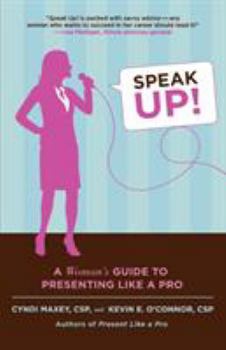Speak Up!: A Woman's Guide to Presenting Like a Pro
Select Format
Select Condition 
More by Steven Tyler
Book Overview
The insider's guide for women who want to master the art of business, professional, and public speaking Whether speaking one-on-one or one to one thousand, women have specific challenges that can get in the way of their ability to convey ideas and engage an audience. Public speaking professionals Cyndi Maxey and Kevin O'Connor give women the tips and tools they need to be able to speak clearly, with confidence and conviction, and present information effectively. In SPEAK UP , you'll learn how to: Deal with difficult colleagues Speak on the spot Use technology in support of your message Sell your ideas with passion and power Connect confidently with your superiors For any woman who wants to get her point across, from the boss' office, to the conference room, to a convention center, SPEAK UP will help you polish your presentation skills, get heard, and get what you want.
Format:Paperback
Language:English
ISBN:0312376286
ISBN13:9780312376284
Release Date:November 2008
Publisher:St. Martins Press-3PL
Length:256 Pages
Weight:0.55 lbs.
Dimensions:0.7" x 5.4" x 8.4"
Customer Reviews
5 customer ratings | 5 reviews
There are currently no reviews. Be the first to review this work.



























